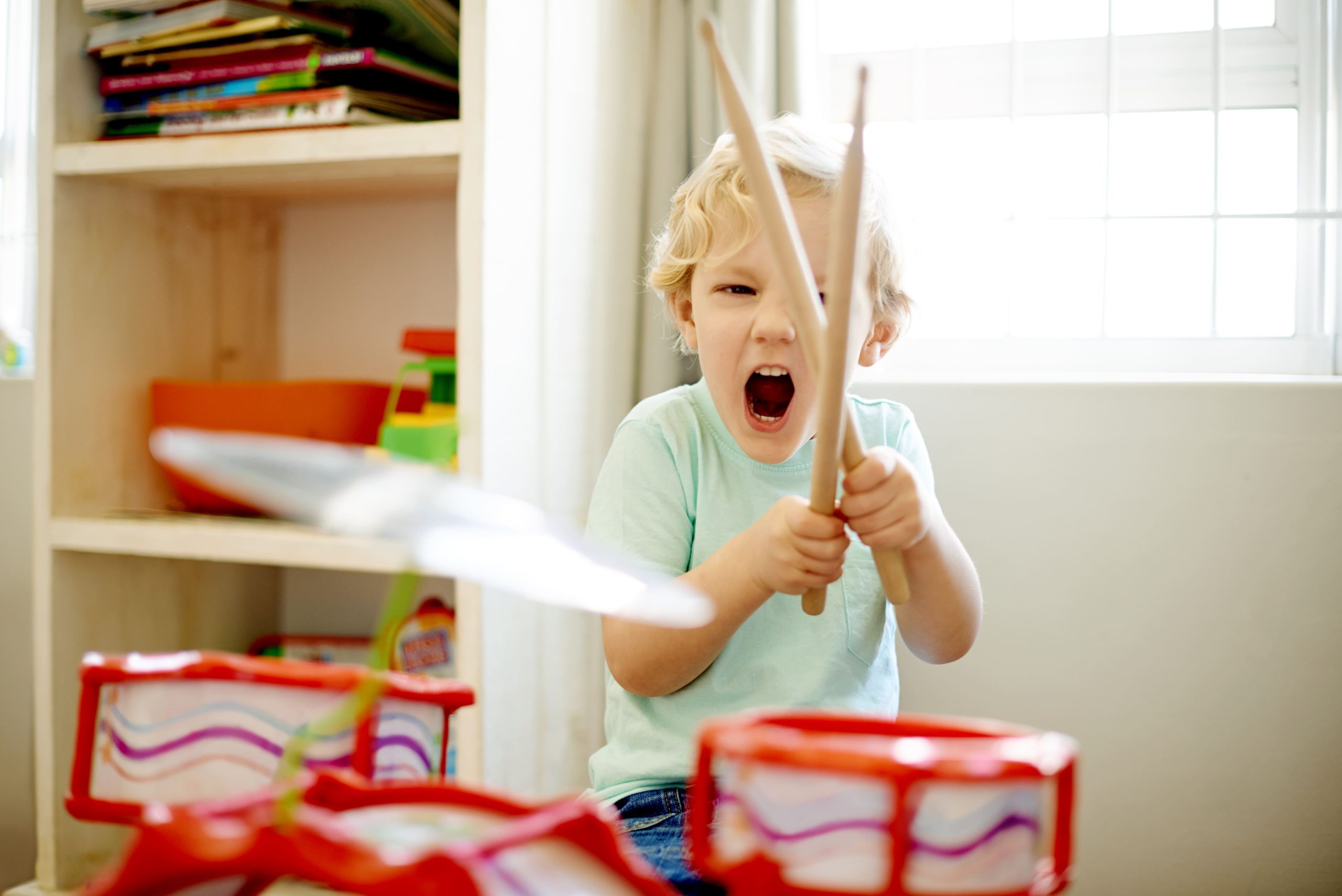What Does High Frequency Hearing Loss Sound Like?
Ever feel like you can hear, but you can’t quite make out what’s being said? Maybe you catch the low rumble of a voice...
Posted on December 13, 2022
Hearing LossWith holiday gift shopping in full swing, learning which noisy toys may contribute to hearing loss for kids and their caregivers is a fa-la-la-la-fabulous idea.

Hearing damage from a toy can occur when it emits any sound that measures 90dB or higher. Kids make the likelihood of damage much greater because they often hold toys closer to their ears due to their short arm span or hold them too close to their caregivers’ ears. A child who does this can make a 90dB sound grow as loud as 120dB, potentially causing permanent hearing loss.1
According to the Center for Hearing and Communication, the following toy types could result in hearing loss because they create sounds over 90dB.
Santa Claus may be coming to town soon, but you can make sure his sleigh isn’t full of noisy toys (or make them less loud if they are).
Try before you buy—If the toy sounds too loud, it probably is. Don’t purchase it.
Muffle the sound—Placing duct tape over the speakers will help.
Bye-bye batteries—Remove batteries from toys that emit too much noise.
Get rid of the toy—Your loved ones’ ears will thank you.
You can also give low-volume gifts, such as puzzles, board games, coloring books and Legos, which lets your child have fun without potentially damaging their (or your) hearing.
However, if you believe you or a loved one has hearing loss, don’t wait until the holidays are over to get help. Request a hearing evaluation today!
1 American Speech-Language-Hearing Association. (n.d.). Noisy toys. American Speech-Language-Hearing Association. https://www.asha.org/public/hearing/noisy-toys/
2 Cochary, J. (2021, May 15). Noisy toys. Center for Hearing and Communication. https://noiseawareness.org/info-center/noisy-toys/
Ever feel like you can hear, but you can’t quite make out what’s being said? Maybe you catch the low rumble of a voice...
Have you ever opened that kitchen drawer and found a little hoard of stuff you forgot you had? Maybe some stray rubber bands, a...
Tympanosclerosis is a post-inflammatory condition affecting the tympanic membrane, or eardrum, and middle ear. Tympanosclerosis can result in hearing loss or be asymptomatic and...
Otomycosis is a fungal ear infection affecting the outer ear. Fungal ear infections are less common than bacterial infections, making up 10% of all outer...